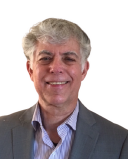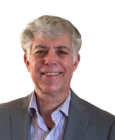Coronavirus Disease 2019
The Coronavirus: What Would Abraham Maslow Do?
Maslow's life offers some clues as to his likely advice.
Posted March 20, 2020
As Maslow’s biographer, I can tell you that he never experienced a global pandemic as an adult—but like most of his generation, he survived the Great Depression and World War II. Indeed, the inspiration for his famous “hierarchy of inborn needs” came in an epiphany when he witnessed a ragtag, patriotic parade in 1942, near Brooklyn College. He realized that the key question for human society is motivation—and that to strengthen our highest motivations must become the goal of science, and particularly, psychology.
Of course, it’s impossible to know exactly the advice he’d give to millions of us right now, worriedly confined to our homes. But having spent years studying his life and times, I have a few thoughts to share.
First, Maslow spoke emphatically about the importance of dealing with life’s vicissitudes from a growth mindset: that is, regarding stressful or challenging situations as opportunities for growth rather than retreating into passivity or pessimism. Especially in pivotal times, he opined, people may face an important choice to make in this regard—and discover inner wellsprings of strength that they hardly knew existed.
“We must abandon our expectation of never-ending contentment and serenity,” Maslow insisted, “for such peak feelings can come only from transient episodes… Self-actualizing people gladly accept… 'troubles' and… such troubles are actually wonderful in comparison to the real miseries of boredom, loneliness, and the experientially empty and stultified life.”
Maslow taught that just as we’re each unique in our individuality, our particular path to self-actualization is also unique. But common to us all at every age—from infancy onward—is the need for creative self-expression. Maslow lamented that most peoples’ innate creativity is suppressed during childhood, but he believed that it remained dormant and could flower under the right circumstances.
What does this mean in concrete terms? Simply that a wonderful opportunity exists to express our creative impulses through art, musical practice, writing, movement, dance, and many other activities. Maslow famously remarked that one can make a soup creatively. Such actions are not about training to be a professional, but rather to enjoy the creative process for its own sake.
Maslow also wrote a lot about authenticity: the joy of discovering who you really are. In this regard, he built upon the seminal work of Dr. Clark Moustakas, a Detroit psychologist and educator who helped found humanistic psychology. Maslow never denigrated those who worked boring, unsatisfying jobs in order to support their family; indeed, he regarded such men and women as heroic—and urged his students to see them that way, too. But he emphasized that the ideal society is one that creates opportunities for all its members to self-actualize.
So, if you’re home now all day—every day for possibly several weeks—your quest for authenticity has just gotten a lot easier.
How do I mean? One strategy suggested by my colleague Dr. Bill Compton is to think back to your childhood interests and hobbies. What aroused your passions back then? Some of us loved to draw or sketch (I was fascinated with water-color painting) but may have abandoned such satisfying activity due to parental or peer disapproval. Others of us loved writing (or reading) poetry as teens but similarly turned away due to a lack of external support. With greater time now for self-exploration, you can amply strengthen your authenticity.
You’ll also be activating your curiosity, a trait gaining increasing attention today in positive psychology. There’s mounting evidence that highly curious people have better social and romantic relationships (probably because they’re more interesting to be with), and may even enjoy better health with advancing age. As Steven Spielberg commented, “The greatest quality that we can possess is curiosity, a genuine interest in the world around us… From this simple question {Why?} and such basic curiosity, great acts are born.” In short, taking time now to cultivate a long-lost hobby may be quite beneficial.
Finally, greater homebound time allows you to develop your mindfulness. In Maslow’s last years, he became interested in Taoism and suggested exercises for maximizing one’s receptivity—such as gazing intently at a flower, or at the face of a loved one or admirable historical figure. Later, Dr. Ellen Langer wrote in a similar context about the dangers of living on “mental autopilot.” By taking advantage of your current homebound situation, your mindfulness can flower.
References
Hoffman, E. (1996). The right to be human: A biography of Abraham Maslow, 2nd edition. NY: McGraw-Hill.
Hoffman, E. (`1996). Future visions: The unpublished papers of Abraham Maslow. Thousand Oaks, CA: Sage.
Compton, W.C. and Hoffman, E. (2020). Positive psychology: The science of happiness and flourishing. Thousand Oaks, CA: Sage.


